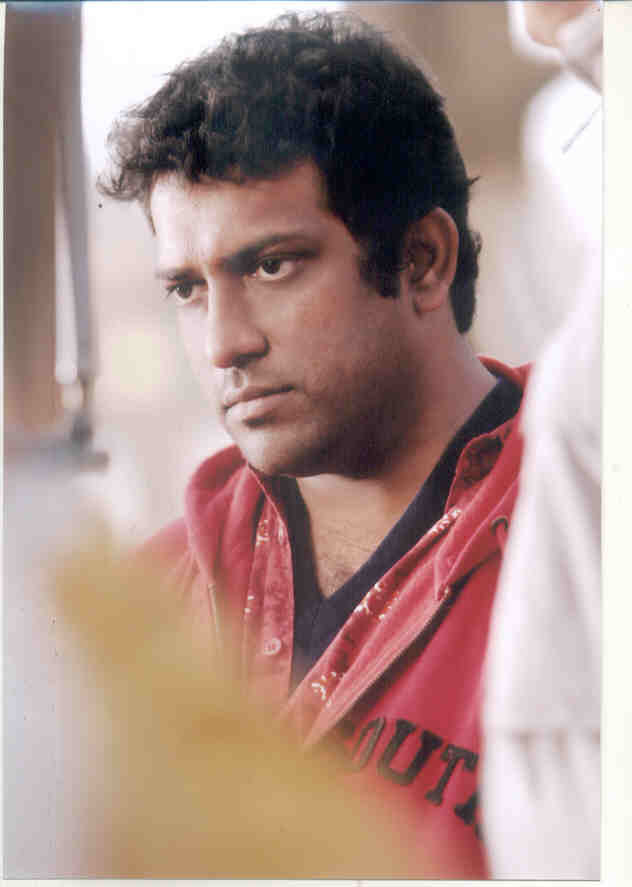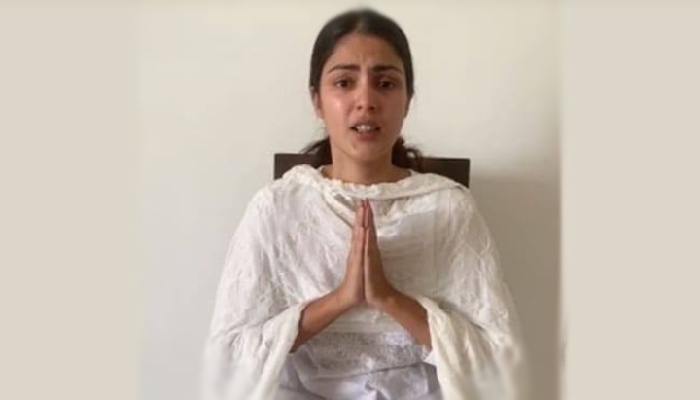 His has been a chequered career. From the slash and burn Murder to the charming Life in a Metro and the disastrous Kites. But with Barfi, both his and his star Ranbir Kapoor's finest film to date, Anurag Basu has become the toast of Bollywood. In this interview, the 38-year-old cancer survivor talks about cheating death, his sheet anchor Mahesh Bhatt and why he will never again make a film which he has not written himself. Excerpts:
His has been a chequered career. From the slash and burn Murder to the charming Life in a Metro and the disastrous Kites. But with Barfi, both his and his star Ranbir Kapoor's finest film to date, Anurag Basu has become the toast of Bollywood. In this interview, the 38-year-old cancer survivor talks about cheating death, his sheet anchor Mahesh Bhatt and why he will never again make a film which he has not written himself. Excerpts:
How did you get into films?
I am from a traditional middle-class, culturally inclined Bengali family from Bhilai. My mom and dad were amateur theatre artistes, due to which my childhood was spent in green rooms. In Bhilai, the only way to a future was to study engineering. I got admission in Jabalpur engineering college but did not join and instead came to Mumbai with the dream of being a part of the entertainment industry. I wanted to join FTII to become a cameraman but for that, I needed to study Physics. I got a chance during my second year of college in Mumbai when I was selected as a background dancer in Prakash Mehra's Dalal. After completing my graduation, I gave myself six months to start working in films.
I used to write my plays and would stand outside film sets asking for work to become an assistant director. Raman Kumar was making the serial Tara then. I was lucky that only a few months after assisting him I became the director of the serial. After Tara, I started getting work and went on to direct several television serials. Bhatt sahab saw some of my work and said I was cut out for movies. A few years later, I met him at the Delhi airport when he asked me to direct my first film for him, Saaya. After which, I did Murder for him.
You were diagnosed with leukaemia. Can you talk a little about those trying days? I had just finished Murder, got married to my girlfriend and we were expecting our first baby when I was diagnosed with leukaemia. It was like a filmy anticlimax where everything was going just right in my life when I was told this shocking news. Initially, I did not take it seriously but then I realised it was very bad. The cancer cells were multiplying fast and the doctors kept altering my chances of survival from 50:50 to two months to finally two weeks. Then I heard about Doctor Sripad Banawali at Tata Memorial whose medication was different from the rest and who said that there may be a chance. Sunil Dutt sahab was then alive and he got me a bed with great difficulty. I was taken in and straight away put on a ventilator. I did not feel much as I was unconscious but it was difficult for my family who sat outside the ICU for over two weeks. While the treatment played a large part in bringing me back to life, the one thing I wanted to live for was to see the face of my child. I did not think of living for long, but I did not want to die without seeing the face of my child. So I feel my daughter Ishana gave me strength to fight at that time. After my treatment, many production houses — including Mukta Arts — who had signed me, could not risk taking me on as a director. I had run out of savings so I went back to television for my livelihood.
During my treatment, Bhatt sahab, Mukeshji and Chotu mausie (Bhatt Sahab's sister with whom I am very close) stood by me, and they were very concerned about my health. They even delayed Gangster for me as they wanted me to become absolutely okay before I could direct it. I had lost my hair and would wear a face mask to avoid infections but Bhatt sahab really took care of me.
Does facing death so closely change your outlook in life?
After my illness, my priorities took a complete turn. Instead of fame and money, my priorities became my family and work.
You are known to make a certain kind of cinema. Kites was an exception. Want to talk about that?
Kites was written by Rakesh Roshan; not me. I am from a small town and have always been attracted to big cars and sets. The story of Kites, when I first heard it, seemed very different and I immediately lapped up the offer to direct it. Many production houses, Rakesh Roshan's included, work in a rather democratic way where every little thing is decided after a discussion. My weakness is that I cannot convince anyone. I was used to Bhatt sahab's way of working where once he signs you up, he steps in only if you need him. Mukeshji will give you a budget and expect you to shoot within that. I remember during one of the schedules of Gangster, we all took turns to cook because the budget did not permit us to hire a cook as we had exceeded our monies.
Mukeshji would say if you want to shoot in Korea, you are welcome, but you need to manage within your monies. However, you were given complete creative freedom. If Bhatt sahab was to call me anytime to do a film for him, I would run and do it. But I will never again direct a film that I have not written.
Kites was also marketed wrongly. We failed in telling our audience that the film was also in Spanish and English and so we got a lot of negativity due to setting up of wrong expectations. It was a small film which became expensive as we were making it and thus even though it was a big grosser, it made a loss.
You've worked with some of the best actors in the industry — have any of them become your friends?
Ranbir is a beautiful person, which is rare in the industry. He is not too much in love with himself, is easy-going and casual. He is very transparent and that shows up in his acting. Emraan Hashmi again is like that. He loves his wife and is not too much in love with himself. Both of them have become friends.
It's been a good ride — you've beaten cancer, made successful films. Any regrets?
During the making of Kites, I lost my father who meant everything to me. I blame myself for his death. I was writing a death scene in a television serial and imagined how it would be if my dad died. That night, I went into his room, hugged him and came back. Shortly after I had written that scene he had a heart attack and died. I was shattered and it affected everything in my life. My dad, an actor, had wanted to succeed in Mumbai. Even though my father lived his dream to be a part of Bollywood through me, I always felt guilty that I became successful while he could not. I only hit the ball while he brought it to the tee. He was my motivation and I miss him greatly.






Comments
Add new comment